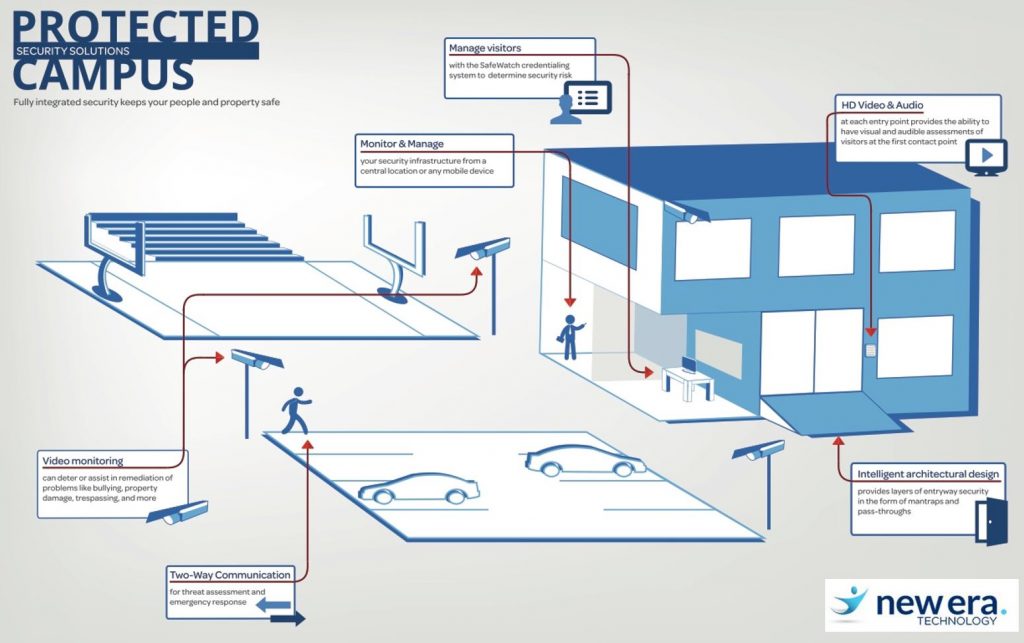As technology progresses and artificial intelligence (AI) becomes a part of our daily lives, it will have a direct positive impact on unified communications. However, the AI consumer tech we have now such as Alexa and Siri won’t cut it. We’ll need to move forward, implementing new technology that’s strong enough to do it all—taking advantage of enterprise AI.
What You Should Know About Enterprise AI
According to Christoph Auer-Welsbach of TechCrunch, “Artificial intelligence will further elevate the enterprise by transforming the way we work, securing digital assets, increasing collaboration and ushering in a new era of AI-powered innovation. Enterprise AI is rapidly moving beyond hype and into reality and is primed to become one of the most consequential technological segments.”
Artificial intelligence (AI) is comprised of processes such as intelligent automation, machine learning, natural language processing, deep learning and more. AI occurs when a computer or robot can act like a human brain and make educated decisions. Enterprise AI is taking AI’s abilities and using them within an enterprise to measure success, gain insight, collect data and make decisions focused on the consumer and the business.
Enterprise AI is best used for cognitive engagement strategies which involve the input of customer data and predictive analytics to produce insights about future customer behavior. Marketers and sales teams can use these tools to track customer engagement and produce targeted campaigns. However, when it comes to unified communications, enterprise AI has even more benefits to offer.
Just like enterprise AI improves the customer’s experience, it will also use unified communications to improve the employee experience.
How Will Enterprise AI Change Unified Communications?
Enterprise AI will be focused on improving the general set of problems involved in unified communications, usually relating to system usability. Different methods of communication such as video conferencing and instant messaging come with a unique set of complications. For example, it’s often difficult to know who is in a meeting or how to join a meeting on a new platform. Some enterprises find it difficult to understand how to share documents or content or how to make their features work the way they should.
However, the biggest change that enterprise AI will bring to unified communications is problem-solving for these concerns. According to Guy Campos of AV Interactive, “Future AI-enhanced UC systems could improve meetings with features such as: more intuitive call recording or transcription, perhaps based on keywords; facial recognition and automated identification to aid meeting set-up; or features such as intelligent speaker tracking.”
These systems will assist employees by offering recommendations and providing useful content seamlessly. “Looking further ahead, more advanced AI features could offer users recommendations on who should join a team meeting, proactively finding and loading useful content, or generating minutes.”
More than Just Voice-Assistants
To see these changes take place, enterprises will need to have much smarter technology than simple voice-assistants like Siri and Alexa. These tools offer a quick way to search for basic information such as the weather, but they don’t know how to compute complex information when asked.
For example, hospitals are considered large enterprises that house billions of bytes of data. A voice-assistant like Siri can’t answer complex patient questions to gather data on advanced medical terminology. For this type of technology to work for the healthcare industry, AI must become enterprise-grade. And for any enterprise to effect unified communications in a way that makes sense, enterprise AI must be ready to disrupt the industry.
Unified Communications Without AI: Productivity Loss
According to networking analyst Zeus Kerravala, “Workers today are getting crushed under the weight of the data and UC tools they have and are sometimes less effective because of this. There are many more ways to communicate and we are using all of them. The intersection of UC and AI is all about helping people do their jobs better by letting machines interpret data and analyze information faster.”
The average employee can use several different forms of communication each day from email to text to voice chat to video conference. Each of these forms of communication come with their own unique set of rules and uses. Unfortunately, each time a worker must switch communication methods, precious time is wasted.
The goal of unified communications mixed with AI is to work smarter, not harder. For this to happen, AI must grow to the enterprise level and take unified communications head on.

 Canada
Canada Australia
Australia New Zealand
New Zealand UAE
UAE United Kingdom
United Kingdom




